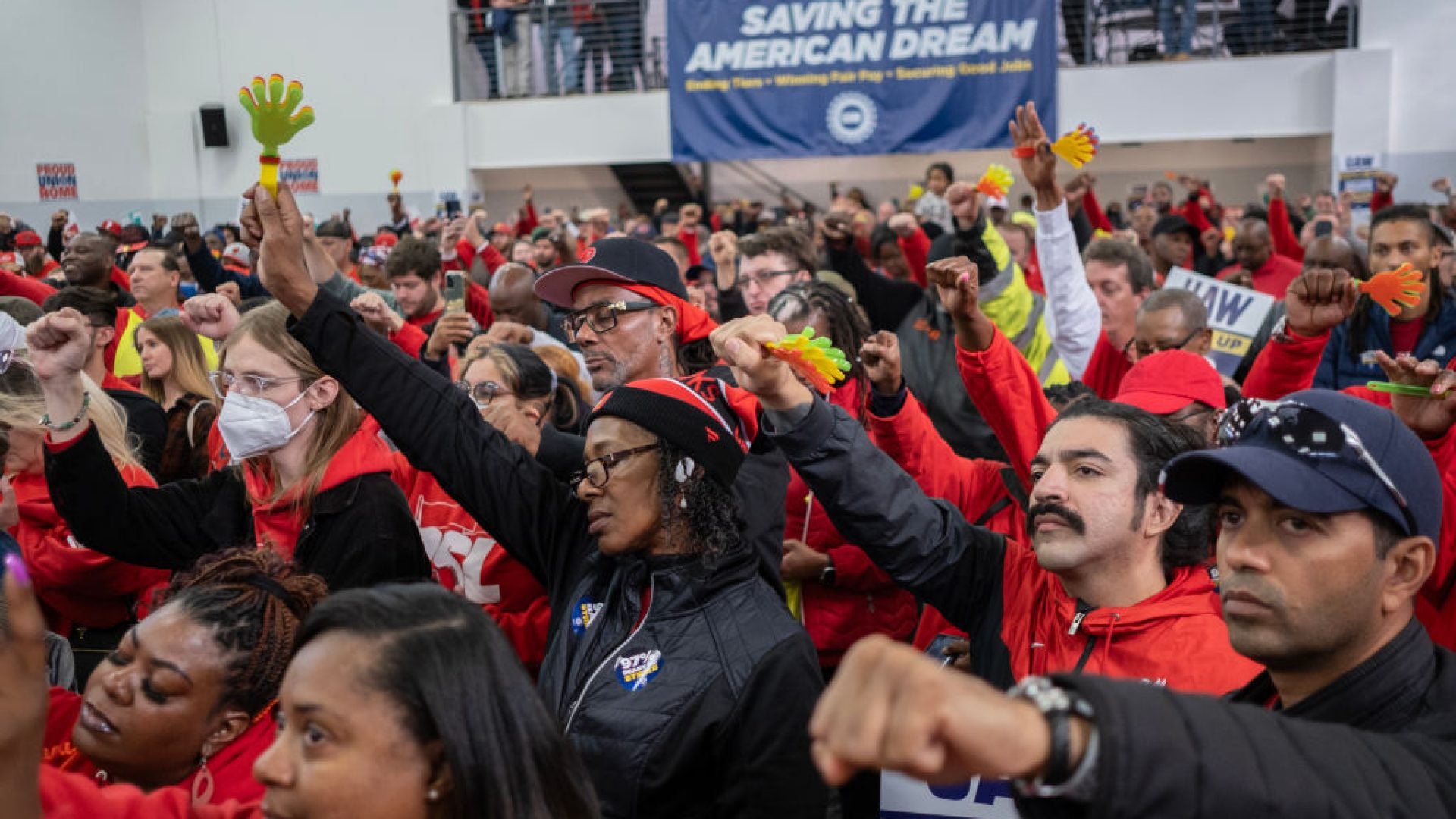
In their fourth week of being on strike, the United Auto Workers (UAW) union has raised the stakes. On Wednesday evening, almost 9,000 members “left their jobs at Ford’s Kentucky truck plant in Louisville,” KY CBS News reports. This move effectively shuts down the largest Ford factory and affects Stellantis, the company that makes Jeeps.
In a video on the social media platform X, Shawn Fain, the President of the union, blamed the automaker. Fain said, “[Ford] isn’t taking us serious,” adding “They made it happen – this is on them.”
But why are the UAW workers striking and what does this mean for Black workers?
According to BBC, this “is the first strike in the union’s 88-year history to target the Detroit Three automakers, which collectively employ more than 140,000 members.” The union wants their workers to be paid at a higher rate in addition to improving the new labor agreements.
Additionally, this strike comes at a critical moment in time as many manufacturers are making the switch over to electric vehicles. They are now opening plants in the South, an area which is oftentimes more hostile to unions and pays lower-wages.
Historically, the auto industry has long been a vehicle for Black Americans to attain a modicum of financial stability. Black people were able to rise to seniority and obtain higher paying positions that they’d been denied in the past. In fact, “[t]he percentage of Black workers in the auto industry today is more than double their share of the workforce overall.”
Lynda Jackson, a Stellantis employee and recording secretary for Detroit’s UAW Local 7, said “For Black people, who have been held back in society, building cars was a way to have a great life.”
Tiffanie Simmons works at the Ford assembly plant in Michigan like her father and brothers, who also work in the industry. Simmons called the “auto industry” “a lot of Black people’s bread and butter.” But she said “it’s failing us right now,” continuing “As a Black Detroiter, the auto industry was the one place that you knew that you could go and make a decent living.”
However, the UAW made concessions in both 2007 and 2009 in the midst of bankruptcies and bailouts. Since then, a decline in U.S. jobs and eroding union power has made a career in the auto industry far less stable.
Jackson echoed these sentiments, “I feel like this fight is for the middle class and people don’t realize it,” “The American consumer thinks that if we make more money, we’re going to make the price of the vehicle go up. And that’s the narrative the company likes to throw out there so that American citizens will turn their backs on us,” Jackson stated.
“The workforce has really carried this company on our backs…And now our company is super profitable. So, this is the time to ask for what we deserve because I want the same type of lifestyle my parents had. They were able to retire after 30 years.” And then Jackson posed the generational gap question that plagues many of us asking, “Will I be able to do that?”